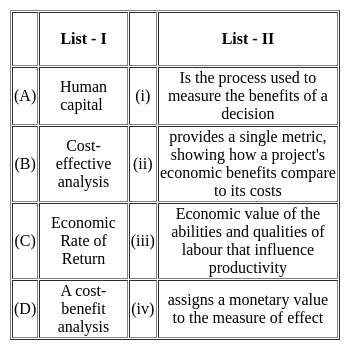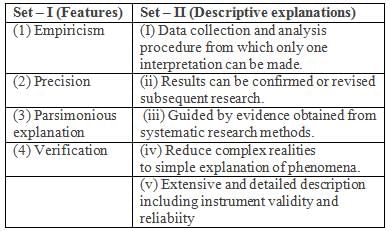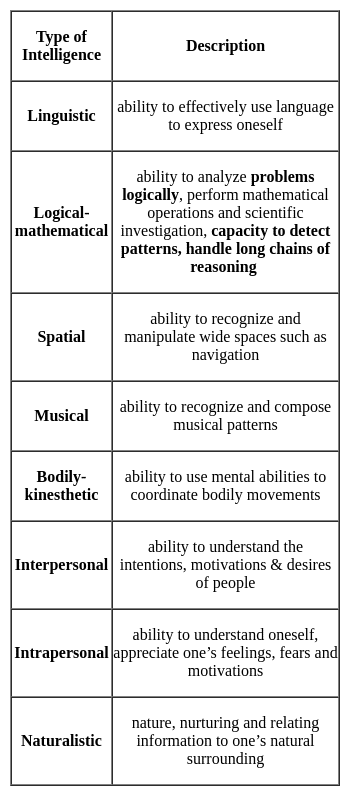UGC NET Paper 2 Education Mock Test - 7 - UGC NET MCQ
30 Questions MCQ Test UGC NET Mock Test Series 2025 - UGC NET Paper 2 Education Mock Test - 7
Multiple Intelligence theory of Intelligence was given by
Shreya attend a yoga class and learning how to perform asanas. Which type of learning involved in the given activity?
Which one of the following statements gives the meaning of quality circle?
Which of the following Sustainable Development Goals (SDG) ensures 'inclusive and equitable quality education'?
Which of the following one strongly recommended that teacher education institutions must be located in a multi and interdisciplinary environment?
Who is the author of the book "The Pedagogy of the Oppressed" ?
On the guidelines of NPE, the MHRD of India has launched various schemes for development of education at all levels. Which among the following is one such Government initiative for secondary education?
What is the major goal of adult education ?
Three stage of user education programme was proposed by
Match the following and select the correct answer from the codes given below :

Which of the following will make a student a good listener in the classroom?
A. Ability to deflect attention
B. Concentration
C. Desire to understand
D. Emotional outbursts
E. Humility to know
F. Ignoring the other side
Choose the correct answer from the options given below:
A research technique in which researchers obtain information about an infant's spontaneous behavior is:
How funds in a given period will be obtained and spent is
Single factor theory of intelligence was given by..........
In ____ a few people with different backgrounds and experiences discuss a thing while others listen.
Who of the following thinkers, defined education as "divine perfection already existing in man"?
Conflict theory is also known as ________.
The assessment of students can be used by teachers in teaching to develop insight into
A. Identifying the students who need to be promoted to the higher class
B. Childs ability of disability, strengths and weakness and working according to those
C. Changing the teaching approach according to the learners need
D. Creating groups of ‘bright’ and ‘weak’ students in the class
Who emphasized that education should be a social process?
The adage of maintaining good relations with others is
The diversity of philosophical conclusions shows
Which people are needed to get education in the agricultural and rural areas of Pakistan?
All financial transaction of the school occurring from day to day is entered in
Below are given some specific features in the research as Set - I while their descriptive explanations in Set - II. Match the items of Set - I with that of Set - II and choose correct code:

|
92 docs|125 tests
|
















